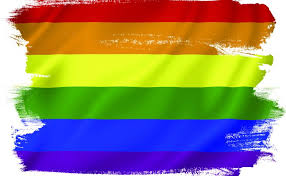– By Anugrah MJ Shrestha, 2ND Year, Amity Law School, Noida
Sexual orientation is an important part of a person’s self-identity. However the sexual identity is linked to a person alone. LGBT stands for Lesbian, Gay, Bisexual, and Transgender. It is a term that is used to define people with a sexual orientation that does not fall under cis-gender. To be secure and able to love someone irrespective of their sex, gender and be given fair and equal treatment. This has been the plight of the LGBTQA community for decades despite numerous judgments and bills being passed to empower and protect them. What can be done for the LGBT community to be treated equally in society?
Historic Strides in LGBTQA Rights
LGBTQA rights have been a topic of discussion for a long time around the world and has gained a lot of importance in India recently. It was only in 2017, when people of the LGBT community were allowed to express their sexual orientation under the Right to Privacy under the Indian Constitution. The Right to Privacy was declared a fundamental right in the same year in the historic KS Puttaswamy versus Union of India (SC, 2017) case.
The following year was historic for LGBT rights in India. In 2018, The Supreme Court of India overturned the long standing article 377. The 9 judge bench unanimously declared the article unconstitutional in the landmark case of Navtej Singh Johar vs. Union of India. Chief Justice Misra described it as”irrational, indefensible and manifestly arbitrary.”
This was a big win for LGBT community as now the law could not punish them for engaging in sexual intercourse with their partners.
In 1969, the Stonewall Riots took place sparking a new form of resistance and change with thin the LGBT community. This was a major turning point in the history of the movement and has led to the creation of the globally celebrated Pride Month which takes place every June.
LGBT Discrimination in Workplace & Employment
People falling under this umbrella term have and continue to be discriminated against in the work place, employment, etc. They are often ridiculed and subjected to violence.
For example, 16% of people from the LGBT community lose their jobs due to their sexuality in America. 58% of them have experienced harassment in the workplace and in 2020 during the lay-offs due to COVID 19, LGBT people were 36% more likely to be fired.
In India it took a landmark case for transgender people to not be discriminated during employment on the grounds of their sexual orientation. This landmark case is NALSA v Union of India. The judgment of this case led to the creation of the Transgender Persons Act, 2019. It prohibits discrimination against transgender persons during work relationship by private or government organizations/individuals under section 3.
However, despite this Act being passed and the court passing judgments that favor LGBT people, they still face discrimination at work and employment. In 2020, a teacher in Kolkata was fired because he was gay.
In 2019, a year after the historic milestone that banned Article 377, Army chief Gen Bipin Rawat insisted that people who were homosexual would not be allowed to serve in the army.
The Defense Minister stated that anyone found doing any homosexual behavior or partaking in such kind of acts would be punished under Section 45 & Section 46 of the Army Act.
LGBTQ Laws are Limited
While overturning article 377 was a huge moment in LGBT rights, this only applies to government authorities and not the private sector or most people who still discriminate against these people. Most people are unaffected by the passing of this law. Thus, they do not feel the need to take it seriously or those affected by it.
This isn’t just the case in India but around the world. Like with previous policies or social changes such as women being allowed to take up professional jobs or abolishing the caste system, people need to be educated and taught to put these changes into practice so that it becomes a norm.
Madras High Court’s Landmark Decision
In the judgment of the recent case of S. Sushma vs. Commissioner of Police that made history, The High Court of Madras ordered state and federal officials to draw up reforms and guidelines so that LBTQ+ people are not harassed or mistreated by police. It also banned the “curing” of homosexuality. Any medical practitioner found guilty of such an act would have their medical license revoked. Not only that by the High court of madras has suggested changes to the school curriculum so that children and parents are better versed in these matters.
The Madras High Court has suggested reforms and measures that must be brought in society. “I strongly feel that the change must take place at a societal level and when it is complemented by a law there will be a remarkable change in the outlook of the society by recognizing same-sex relationships” said Justice Anand Venkatesh who underwent training and educated himself on the matter with the help of psychologists.
Final Thoughts
It is important to educate the people in society on these matters for the laws and policies passed down by government authorities to fully take effect and be efficient. Only when society changes then will the LGBTQA+ community get much needed security. Society, cannot choose to be ignorant on such a matter.
Most social norms weren’t widely accepted before and it was only after reforms and with repeated practice that people welcomed such a shift in dynamics. The issues faced by the LGBTQA+ community is the same and only embracing this will make way for development.

